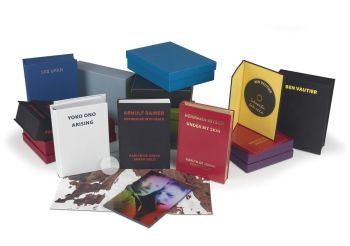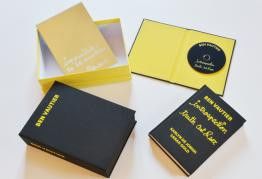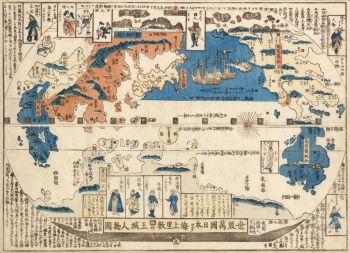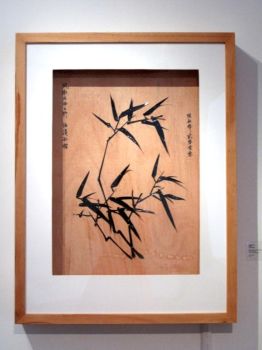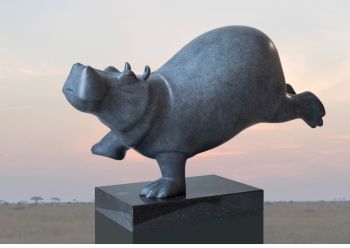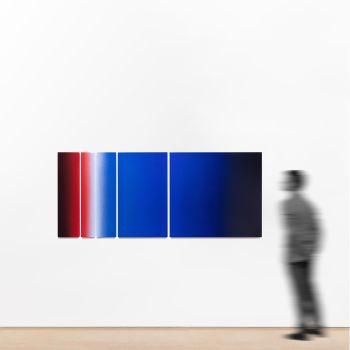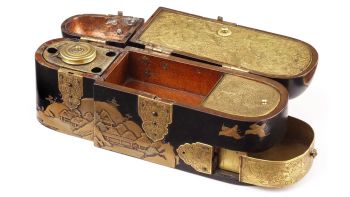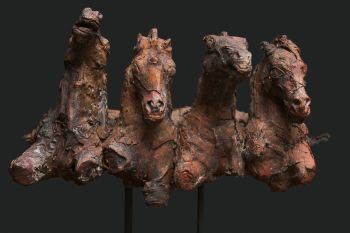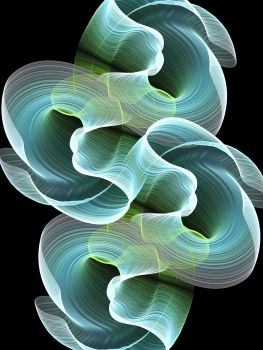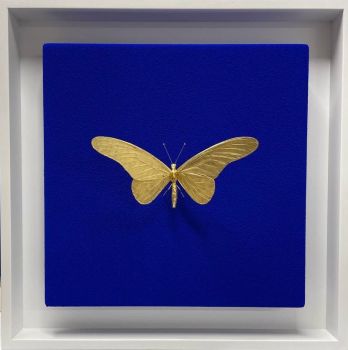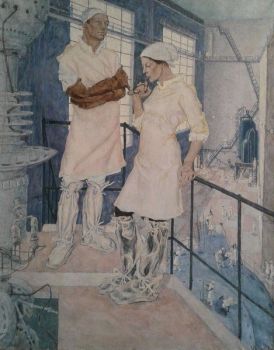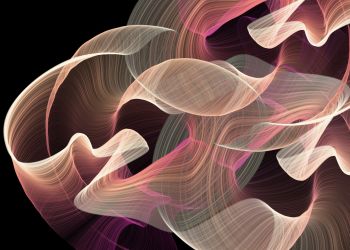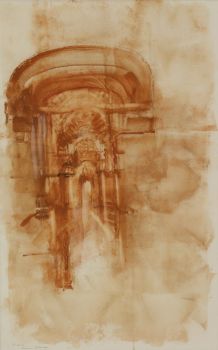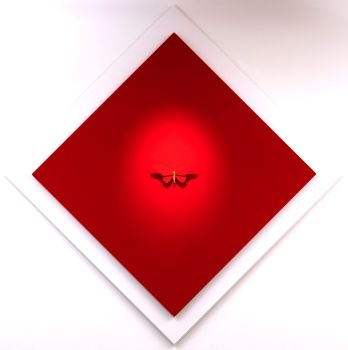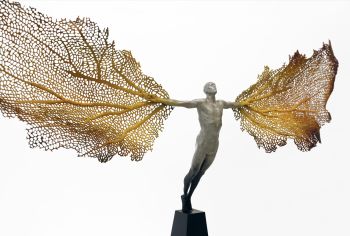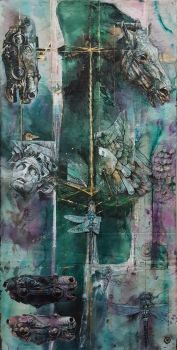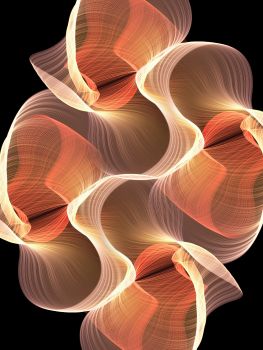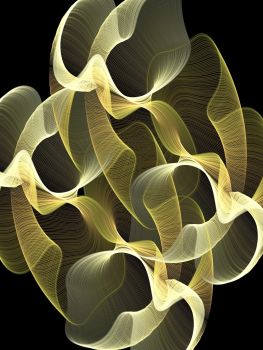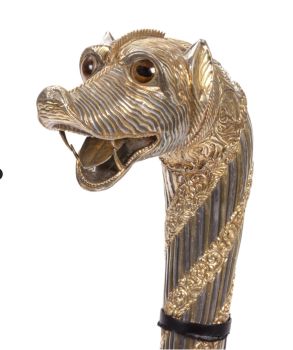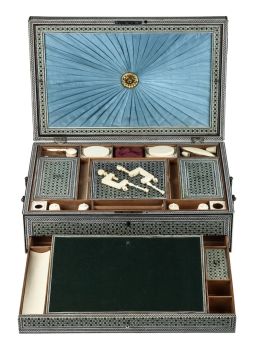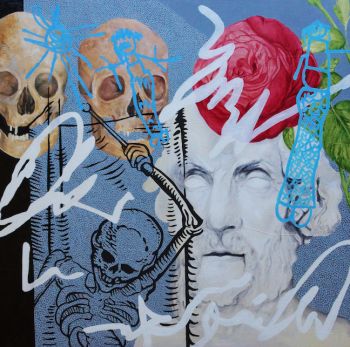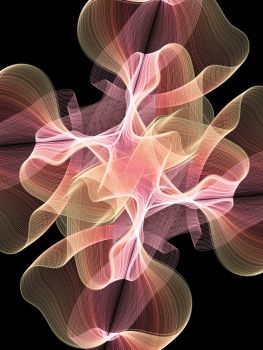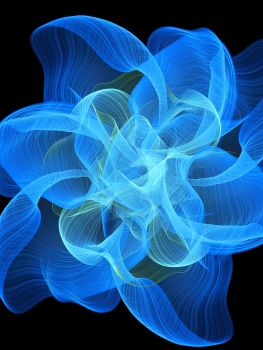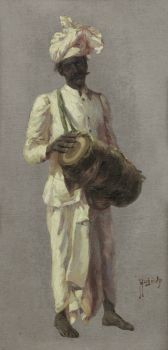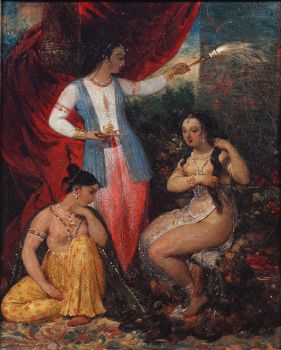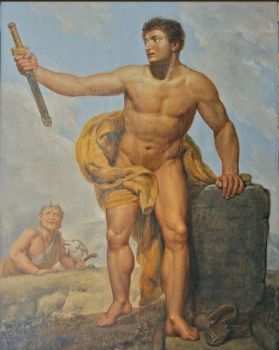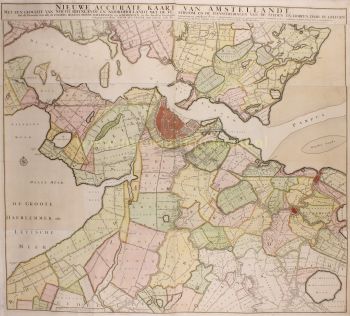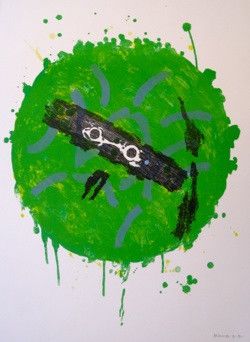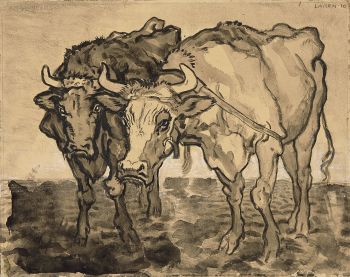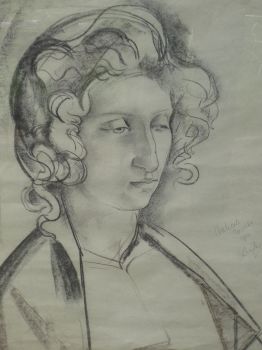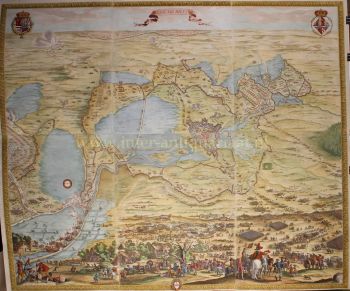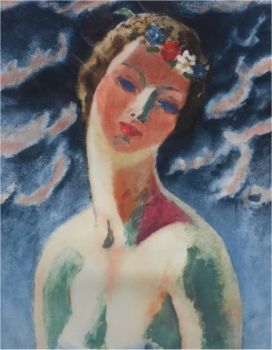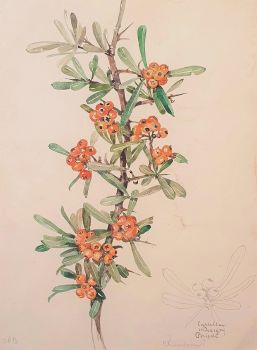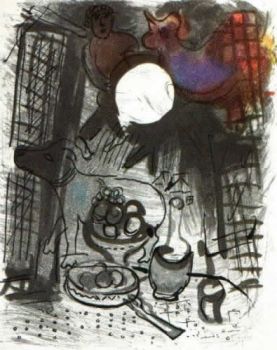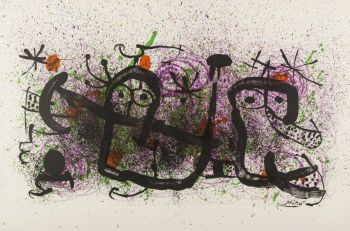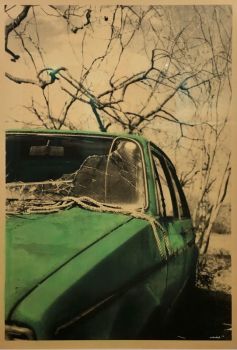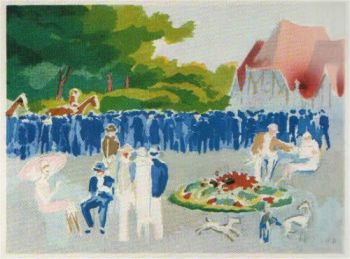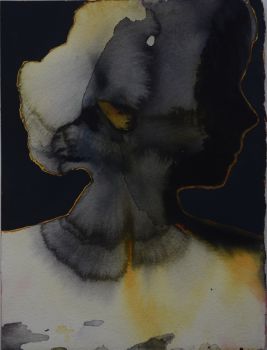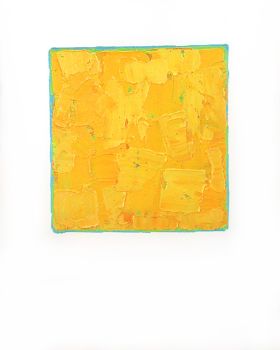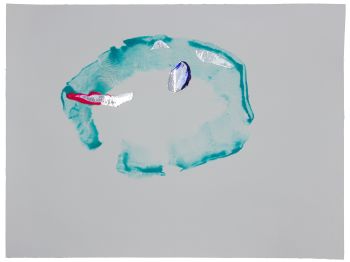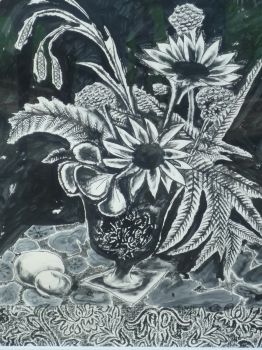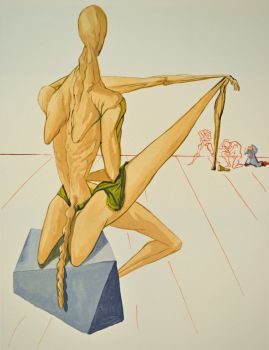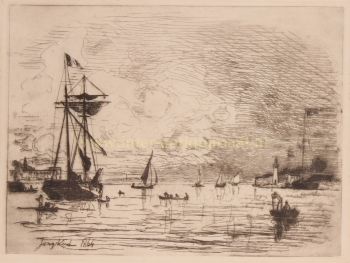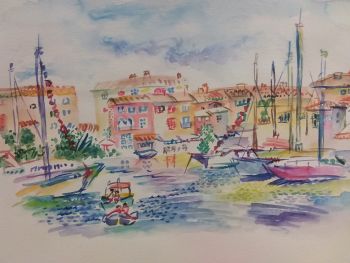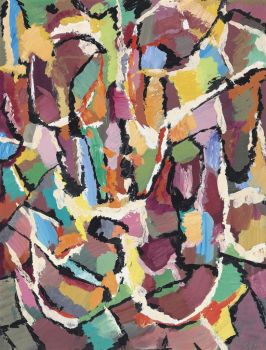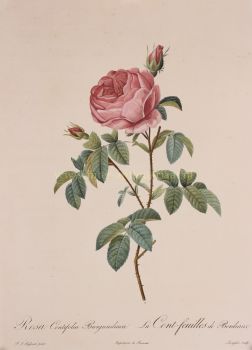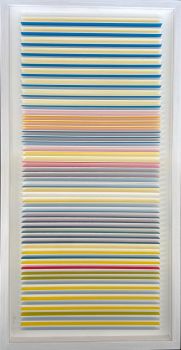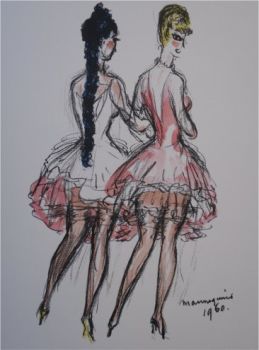Secreta secretorum Aristotelis; Medical secrets plus a largely imaginary Medieval European view of I 1528
Alessandro Achillini
PapelCuero
Actualmente no disponible a través de Gallerease
- Sobre la obra de arteSecreta secretorum Aristotelis.
Including:
ARISTOTLE [pseudo]. Maximi philosophi ... de signis aquarum: & tempestatum.
ARISTOTLE [pseudo]. Maximi philosophurum ... de mineralibus.
ALEXANDER OF APHRODISIAS. De intellectu.
AVERROES. De beatitudine anime.
ACHILLINI, Alexander. De universalibus.
ALEXANDER THE GREAT [pseudo]. De mirabilibus Indie.
(Colophon: Lyon, Antoine Blanchard, 23 March) 1528. Small 8vo (15 x 10.5 cm). With a title-page with a decorated woodcut border, woodcut printer's device on last page, 6 woodcut initials. Contemporary blind-tooled sheepskin(?) parchment over wooden boards, in a panel design, brass catch-plates and anchor-plates (straps and clasps lost).
Collection of seven treatises on medicine and philosophy, edited by Alessandro Achillini (1463-1512). Four of these are pseudo-Aristotelian works that had been well known since the 13th century or earlier. The Secreta secretorum is here present in the translation of Philip of Tripoli; the De signis aquarum, ventorum et tempestatum on weather signs, was translated in the 13th century by Bartholomew of Messina; the third pseudo-Aristotle is De mineralibus on gems; the fourth, Alexandri Macedonis ad Aristotelem de mirabilibus Indie, is a fictitious letter by Alexander the Great to his teacher Aristotle, describing the wonders of India and the East. Three other similar "Indian tractates" are known, all of them connected with the romance of Alexander the Great at various points in history.
The three remaining treatises in the present work consist of a work by Alexander of Aphrodisias on the intellect, another by Averroes on the beauty of the soul, and a work by Achillini himself on universals.
Very good copy, with very slight browning and a few marginal spots, lacking the final blank. Binding lacking straps and clasps, and with the (restored?) spine damaged.
Baudrier V, p. 104; Stillwell 578; USTC 155810 (8 copies); cf. Lach II, book 2, p. 94 ; Thorndike V, pp. 47-48. - Sobre el artistaAlessandro Achillini (1463 o 1461, Bolonia - 1512, Bolonia) fue un célebre profesor de medicina y filosofía en Bolonia y Padua. Vivió en Bolonia la mayor parte de su vida. Fue llamado "el segundo Aristóteles". Era de naturaleza sincera y poseía un carácter dinámico. Fue un polemista formidable. Sus obras filosóficas se publicaron en un volumen (folio), en 1508, en Venecia, y se reimprimieron en 1545, 1551 y 1568 (ediciones ampliadas). En 1506 tuvo que salir de Bolonia por motivos políticos, porque era partidario de la familia Bentivoglio. Se fue a Padua, donde se convirtió en profesor de filosofía desde 1506 hasta 1508). Achillini también fue un distinguido anatomista, escribió, entre otros, De humani corporis anatomia (La anatomía del cuerpo humano), Venecia, 1516-1524. Fue enterrado en 1512 en Bolonia en la iglesia de San Martín.
Artwork details
Related artworks
Antonie Derkinderen
Memory book Exhibition of Dutch Painting1892
Precio a consultarKunsthandel Pygmalion
Engelbert Kaempfer
LIBRO DE ENGELBERT KAEMPFER1651 - 1716
Precio a consultarZebregs & Röell - Fine Art - Antiques
Tilmanus Nicolaus Maastricht
Missale Romanum con monturas de plata holandesas1788 - 1792
Precio a consultarJacob J. Roosjen SRI
Yoko Ono
YOKO ONO: "ARISING" SIGNED BOOK PLUS SMALL ARTWORK 2010 - 2014
Precio a consultarGallerease Selected
Hermann Nitsch
"UNDER MY SKIN" Signed book incl. small artwork and DVD in a matching box2010 - 2014
Precio a consultarGallerease Selected
Tilmanus Nicolaus Maastricht
Missale Romanum con monturas de plata holandesas1788 - 1792
Precio a consultarJacob J. Roosjen SRI
Engelbert Kaempfer
LIBRO DE ENGELBERT KAEMPFER1651 - 1716
Precio a consultarZebregs & Röell - Fine Art - Antiques
Antonie Derkinderen
Memory book Exhibition of Dutch Painting1892
Precio a consultarKunsthandel Pygmalion
LAWRENCE WEINER
"SKIMMING THE WATER [MENAGE A QUATRE]" Signed book plus small artwork2010 - 2014
Precio a consultarGallerease Selected
1 - 4 / 22Artista Desconocido
A rare Japanese export lacquer medical instrument box1650 - 1700
Precio a consultarZebregs & Röell - Fine Art - Antiques
Artista Desconocido
An Indian part-gilt silver-clad ceremonial sceptre or mace with a tiger’s head1850 - 1900
Precio a consultarZebregs & Röell - Fine Art - Antiques
 curada por
curada porDanny Bree
1 - 4 / 24- 1 - 4 / 24

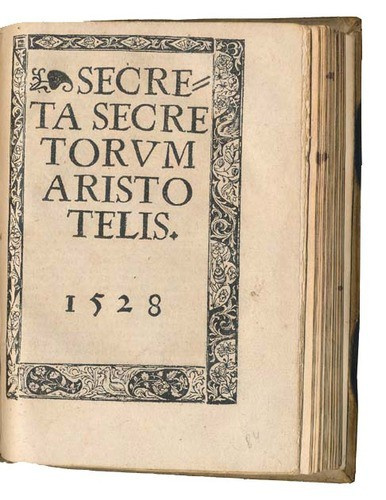




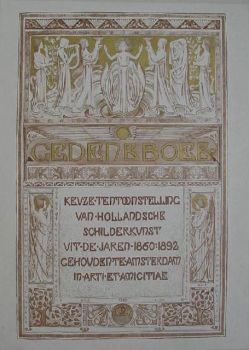
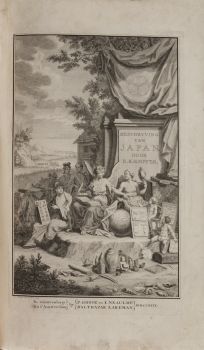
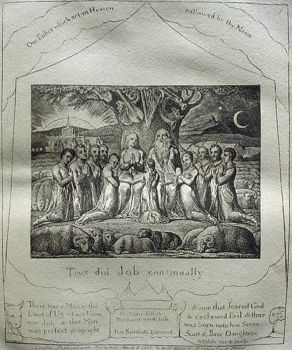
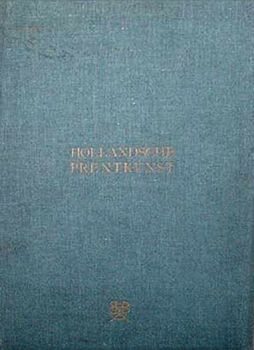
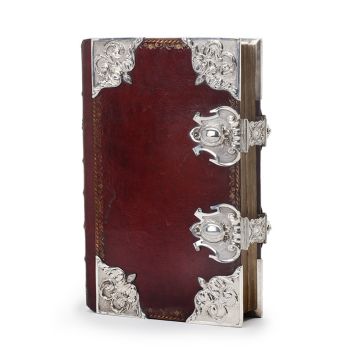
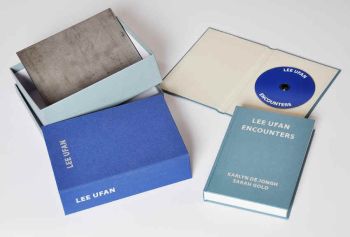
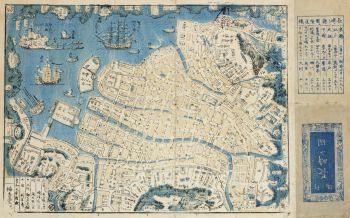
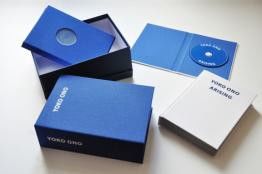

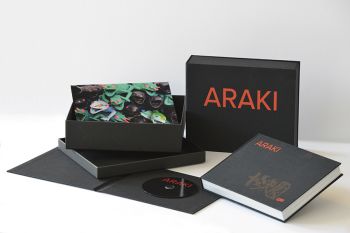
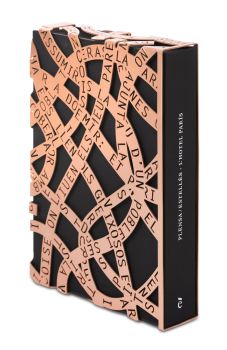
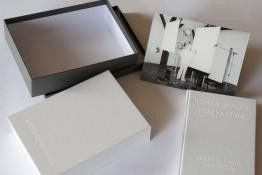
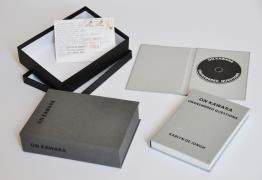
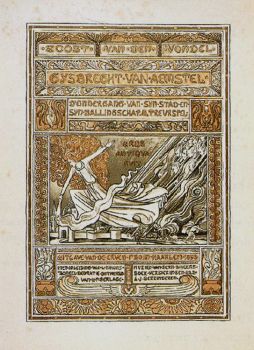
!["SKIMMING THE WATER [MENAGE A QUATRE]" Signed book plus small artwork by LAWRENCE WEINER](https://media-2.gallerease.com/images/442bfd5f-fc31-4e18-a2fa-ee0c08eade64/350x350/skimming-the-water-menage-a-quatre-signed-book-plus-small-artwork.jpg)
